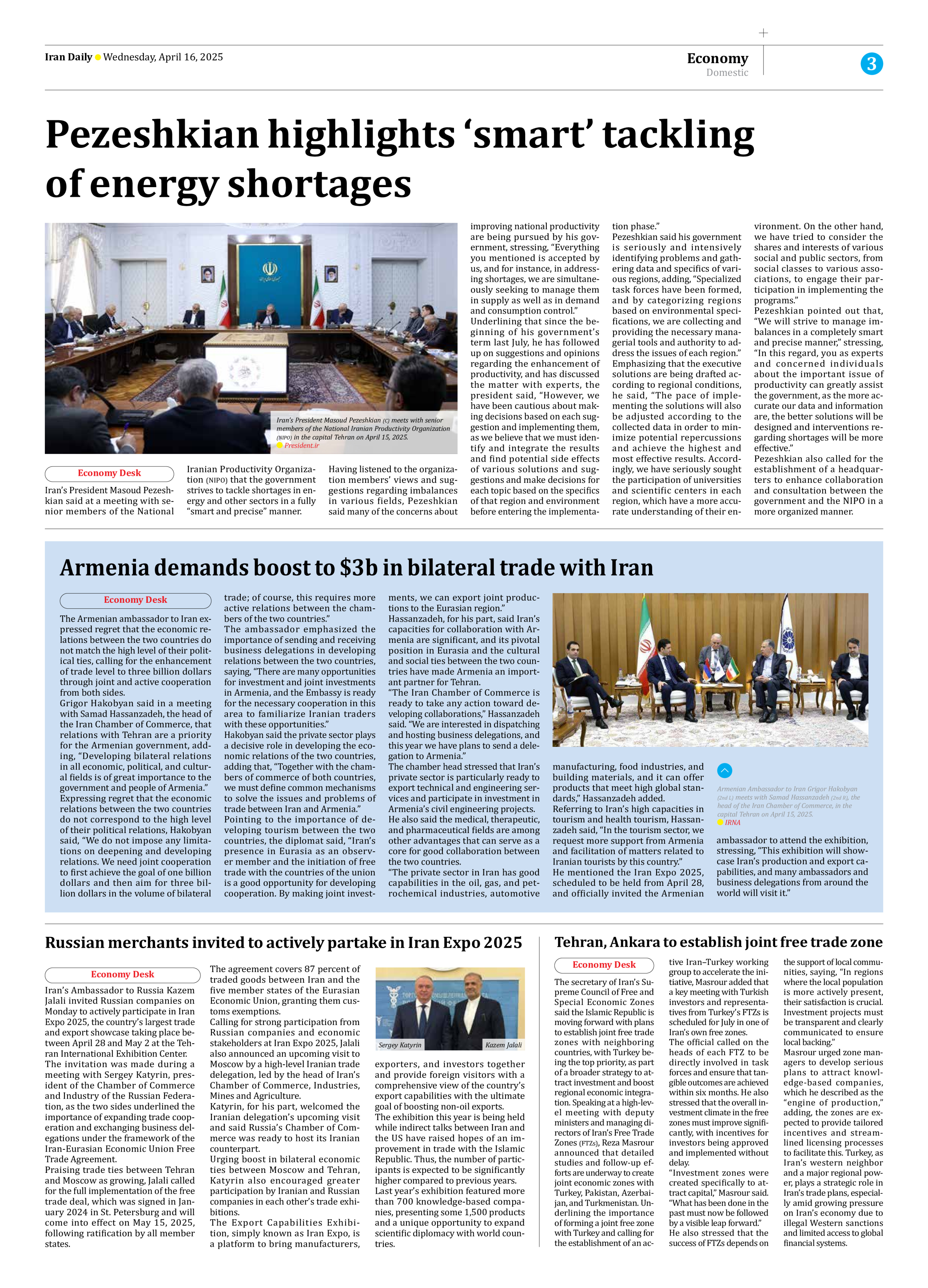
Tehran, Ankara to establish joint free trade zone
The secretary of Iran’s Supreme Council of Free and Special Economic Zones said the Islamic Republic is moving forward with plans to establish joint free trade zones with neighboring countries, with Turkey being the top priority, as part of a broader strategy to attract investment and boost regional economic integration. Speaking at a high-level meeting with deputy ministers and managing directors of Iran’s Free Trade Zones (FTZs), Reza Masrour announced that detailed studies and follow-up efforts are underway to create joint economic zones with Turkey, Pakistan, Azerbaijan, and Turkmenistan. Underlining the importance of forming a joint free zone with Turkey and calling for the establishment of an active Iran–Turkey working group to accelerate the initiative, Masrour added that a key meeting with Turkish investors and representatives from Turkey’s FTZs is scheduled for July in one of Iran’s own free zones.
The official called on the heads of each FTZ to be directly involved in task forces and ensure that tangible outcomes are achieved within six months. He also stressed that the overall investment climate in the free zones must improve significantly, with incentives for investors being approved and implemented without delay.
“Investment zones were created specifically to attract capital,” Masrour said. “What has been done in the past must now be followed by a visible leap forward.”
He also stressed that the success of FTZs depends on the support of local communities, saying, “In regions where the local population is more actively present, their satisfaction is crucial. Investment projects must be transparent and clearly communicated to ensure local backing.”
Masrour urged zone managers to develop serious plans to attract knowledge-based companies, which he described as the “engine of production,” adding, the zones are expected to provide tailored incentives and streamlined licensing processes to facilitate this. Turkey, as Iran’s western neighbor and a major regional power, plays a strategic role in Iran’s trade plans, especially amid growing pressure on Iran’s economy due to illegal Western sanctions and limited access to global financial systems.







